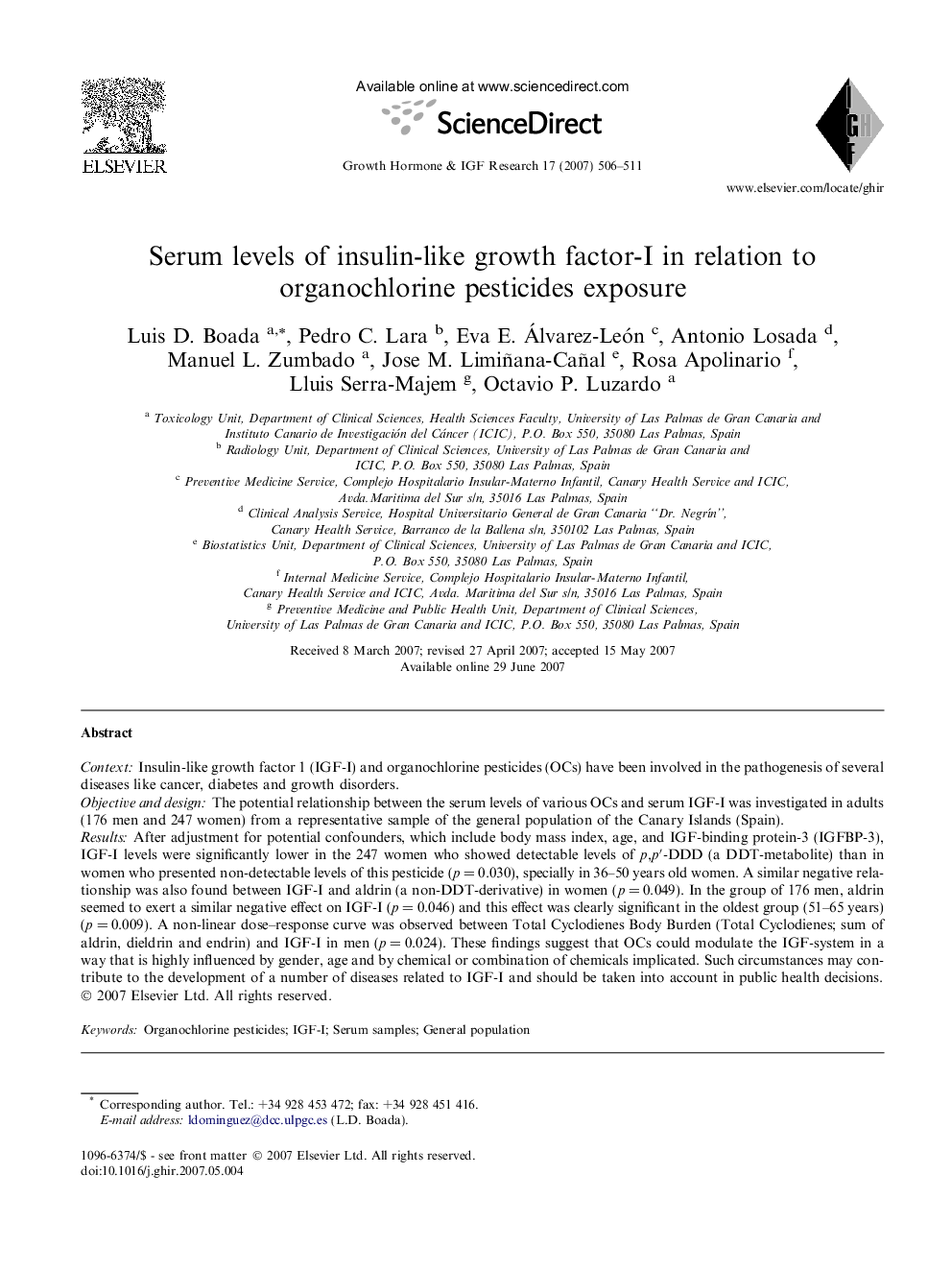| Article ID | Journal | Published Year | Pages | File Type |
|---|---|---|---|---|
| 2803510 | Growth Hormone & IGF Research | 2007 | 6 Pages |
ContextInsulin-like growth factor 1 (IGF-I) and organochlorine pesticides (OCs) have been involved in the pathogenesis of several diseases like cancer, diabetes and growth disorders.Objective and designThe potential relationship between the serum levels of various OCs and serum IGF-I was investigated in adults (176 men and 247 women) from a representative sample of the general population of the Canary Islands (Spain).ResultsAfter adjustment for potential confounders, which include body mass index, age, and IGF-binding protein-3 (IGFBP-3), IGF-I levels were significantly lower in the 247 women who showed detectable levels of p,p′-DDD (a DDT-metabolite) than in women who presented non-detectable levels of this pesticide (p = 0.030), specially in 36–50 years old women. A similar negative relationship was also found between IGF-I and aldrin (a non-DDT-derivative) in women (p = 0.049). In the group of 176 men, aldrin seemed to exert a similar negative effect on IGF-I (p = 0.046) and this effect was clearly significant in the oldest group (51–65 years) (p = 0.009). A non-linear dose–response curve was observed between Total Cyclodienes Body Burden (Total Cyclodienes; sum of aldrin, dieldrin and endrin) and IGF-I in men (p = 0.024). These findings suggest that OCs could modulate the IGF-system in a way that is highly influenced by gender, age and by chemical or combination of chemicals implicated. Such circumstances may contribute to the development of a number of diseases related to IGF-I and should be taken into account in public health decisions.
